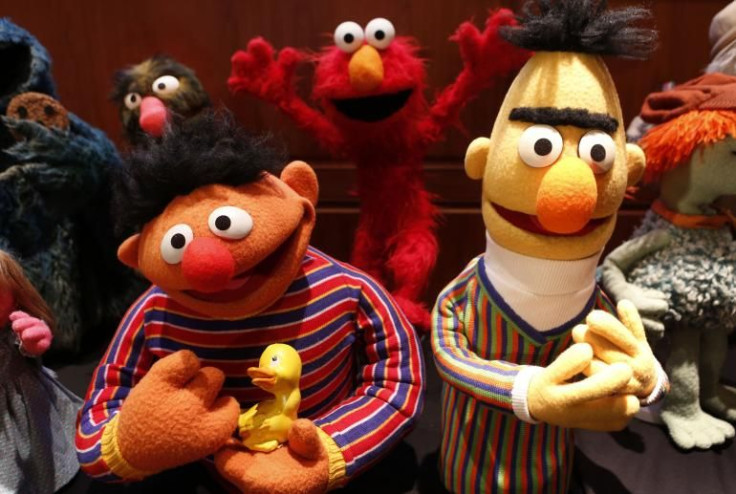'Sesame Street' Turns 45, Pioneering Kids' Show Born During Civil Rights Era

“Only time will tell how 'Sesame Street' does over the long haul," wrote Jack Gould in a 1969 New York Times article about the children's educational show, which debuted as a six-month experiment by the Children's Television Network. On Monday, the show that used "techniques of television to woo youngsters into an awareness of the alphabet, numbers, healthy social relationships, lessons in logic and thoughtful behavior" turned 45.
Debuting in 1969 on PBS, "Sesame Street" was conceived by psychologist Lloyd Morrisett, who approached TV producer Joan Ganz Cooney about using the power of television to educate and to prepare children – particularly from low-income families -- for school. Cooney was able to talk the federal government into giving "Sesame Street" $4 million -- half of its two-year budget -- according to the Daily Beast. Its point was to see "if television could successfully teach the words and music to advertisements, couldn't it teach children more substantive material by co-opting the very elements that made ads so effective," wrote Michael Davis, author of "Street Gang: The Complete History of Sesame Street," who also lauded the show as "one of the most important television developments of the decade."
Over the years, not only have "Sesame Street's" puppets and people alike taught children how to count, share, and be empathetic, it introduced them to a multicultural cast of hosts who sometimes taught children hard lessons, including about death. In one show, the entire cast actually grieves the death of Will Lee, who played Mr. Hooper on the show, teaching Big Bird, and by extension, the children who watched, about the death of his friend.
Roscoe Orman, one of the three "Gordon" characters who hosted the show, told Time that "Sesame Street" was conceived in the late 1960s, "the decade of the great movements of civil rights, anti-war and the tragic assassinations of the two Kennedy brothers and Dr. King. This really impacted all of us in ways that I think eventually led to what 'Sesame Street' was addressing, which was a need to broaden the media’s outreach, to provide some way of addressing those young people who traditionally had been left out by and large: African American, Hispanic, and Asian communities," he said. "We really became a rainbow for people to look to as a sign of hope for what the world could be.”
© Copyright IBTimes 2024. All rights reserved.





















